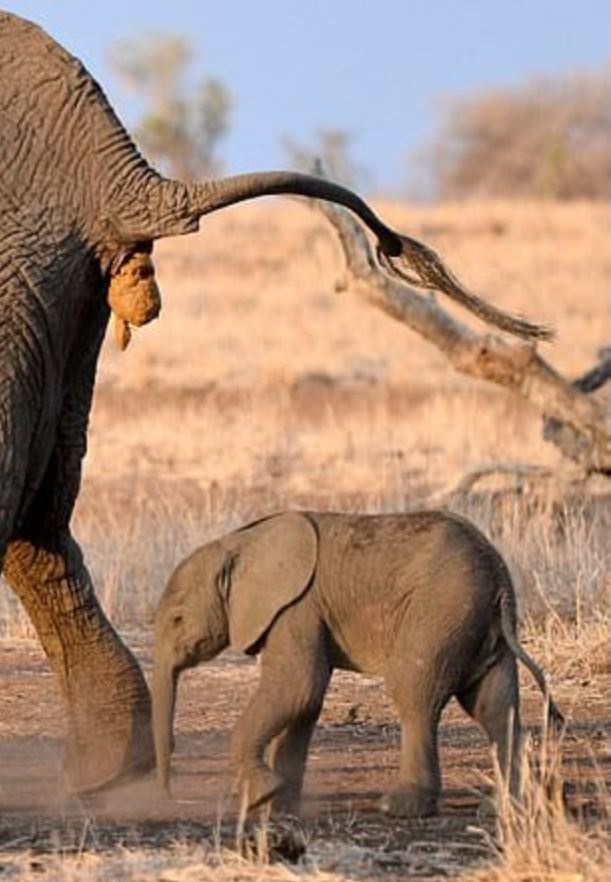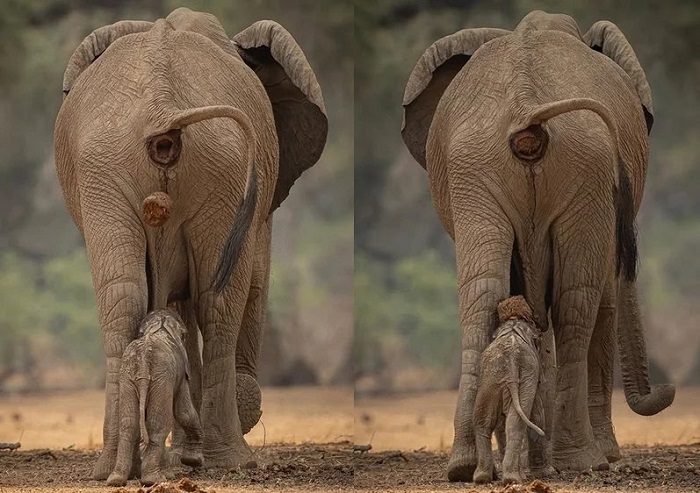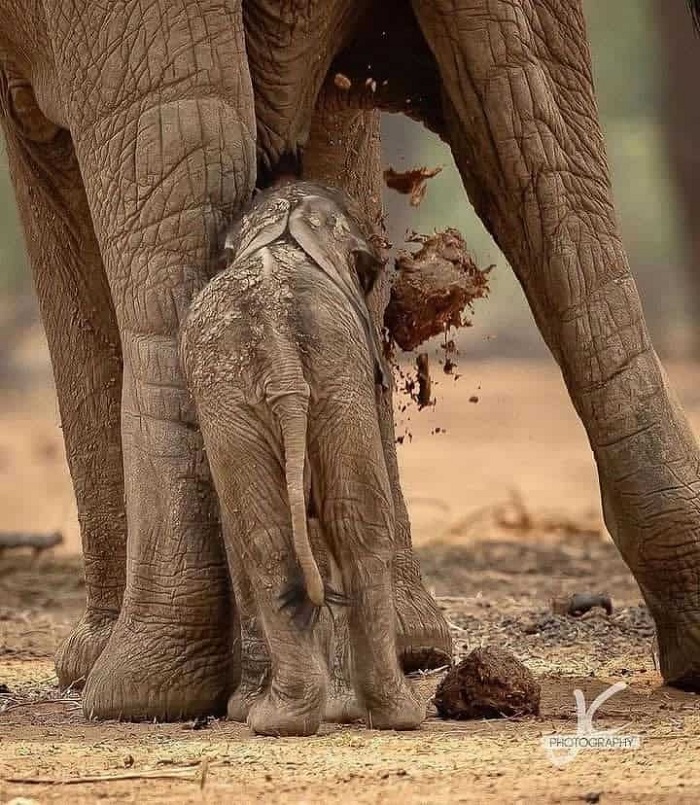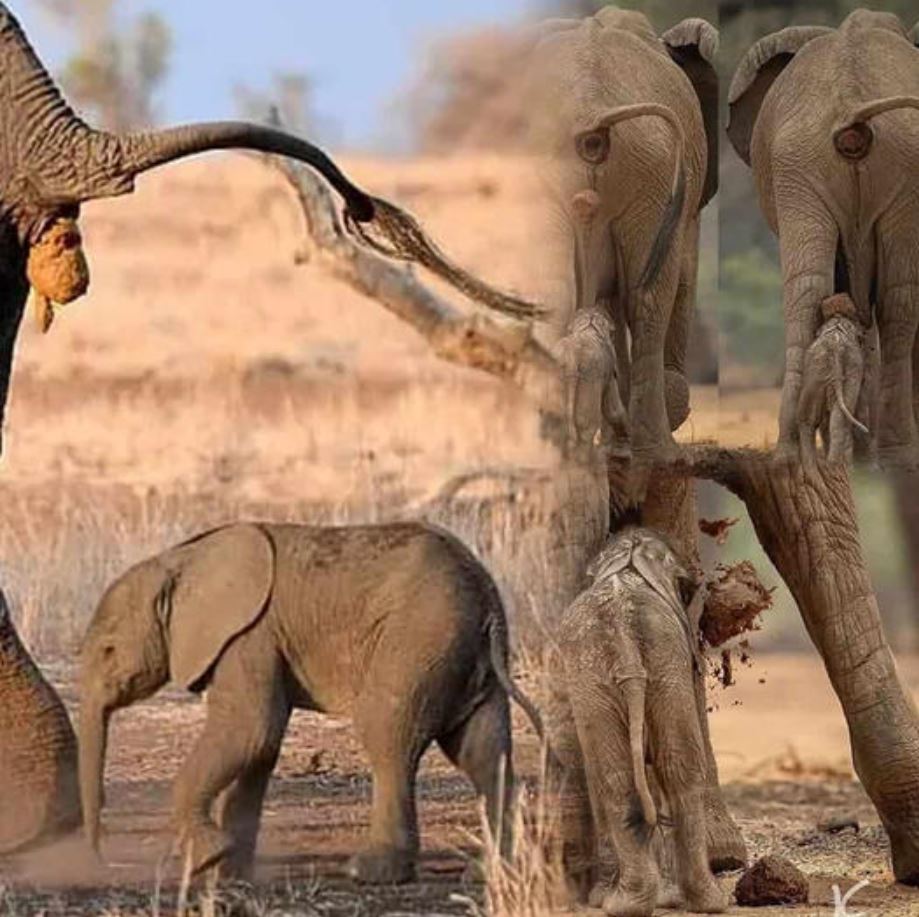A baby elephant’s unexpected dietary preference has captured attention, shedding light on the fascinating behavior of coprophagia, or eating feces.
Recently, a young elephant showed intense interest in his mother’s dung, even using a stick to sample it.

While this might seem odd to humans, this behavior is quite common among various animal species, including elephants, rhinos, hippos, and warthogs.
Consuming feces, known as coprophagia, plays a crucial role in the health and growth of young animals, even though it is rarely witnessed by people in natural settings.
Elephants are hindgut fermenters, meaning their food ferments in the large intestine with the help of bacteria after passing through the stomach and small intestines. Interestingly, newborn elephants lack the necessary gut bacteria to digest plants.

They acquire these essential microbes by consuming the feces of their mother or other herd members. This transition to solid food is vital while they are still nursing.
Elephant dung, primarily composed of water (75%), indigestible fibers, live and dead bacteria, salts, mucus, and dead cells, provides these crucial bacteria to baby elephants, aiding in developing their immune and digestive systems.
In Africa, many wild animals exhibit coprophagia. This behavior, although seemingly unappealing, serves a vital purpose.

Feces contain essential minerals and salts necessary for an animal’s health. For example, hyenas consume bones, making their feces rich in calcium, which leopard tortoises consume to obtain the required calcium for egg-laying and shell hardening.
Similarly, rabbits and hares eat their droppings to absorb nutrients missed during the first digestion.
These animals have adapted this practice to ensure they receive all necessary nutrients for their well-being.

